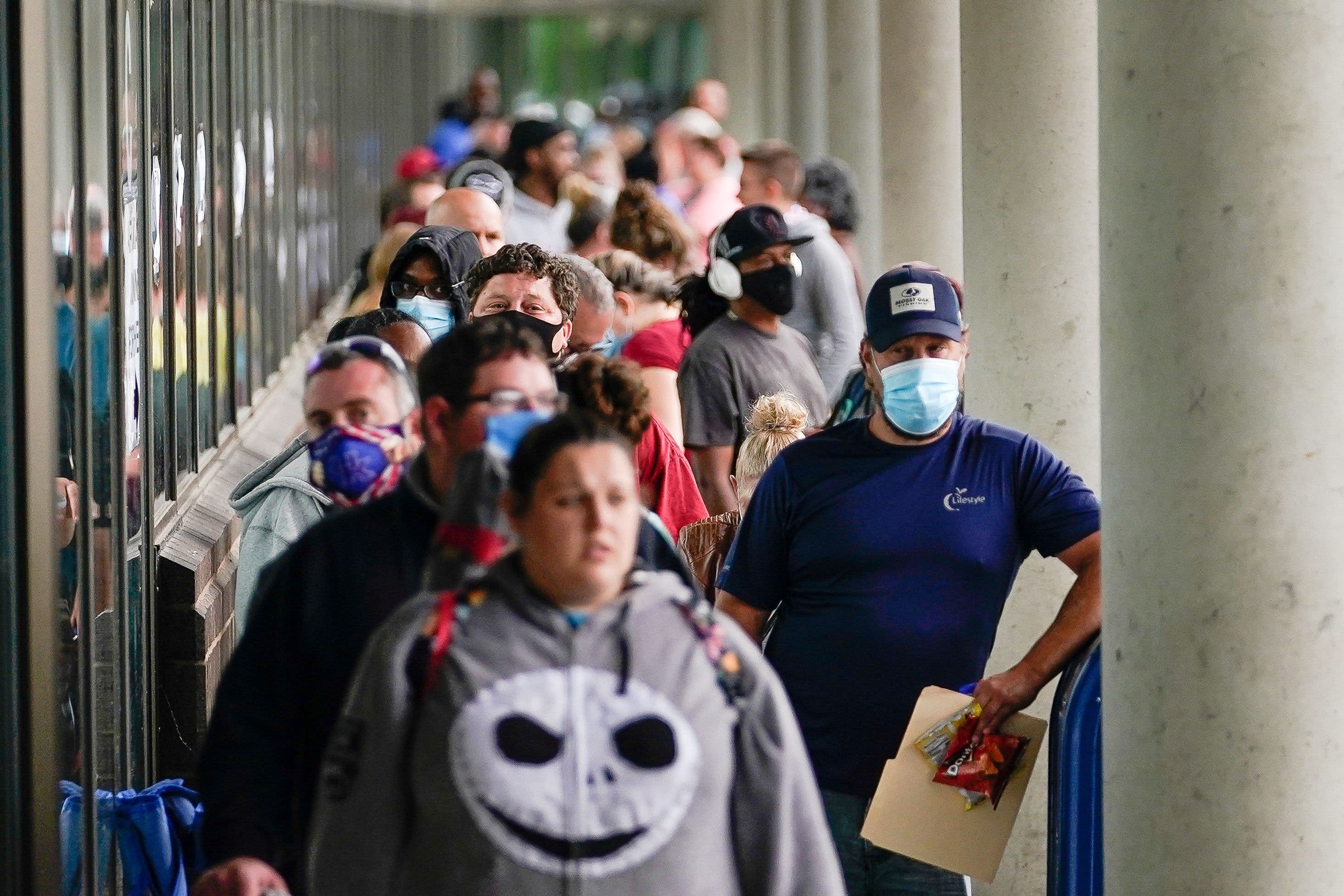
Jobless claims totaled 1.48 million last week as unemployment related to the coronavirus pandemic remained stubbornly high, though those receiving benefits fell below 20 million for the first time in two months, the government reported Thursday.
Economists surveyed by Dow Jones had been expecting 1.35 million claims.
While the weekly numbers remained high and were worse than Wall Street estimates for the second straight week, the total of those receiving benefits continued to fall: Continuing claims fell by 767,000 to 19.52 million.
“Initial and continuing claims point to gradual improvement in the labor market. Falling initial claims signal that the pace of layoffs is slowing, but it still extremely high,” said Gus Faucher, chief economist at PNC Financial.
There also were 728,120 initial claims under the Pandemic Unemployment Assistance program.
The unexpectedly high number comes as all 50 states have reopened following a shutdown that began in mid-March. Rising cases across various states has prompted some governors to reconsider the relaxed policies.
“The danger now is that claims rebound in other states where infections are rising rapidly, and people are starting again to stay away from restaurants and malls,” said Ian Shepherdson, chief economist at Pantheon Macroeconomics.
The most recent number marked the 14th straight week that filings remained above 1 million, a total first eclipsed for the week ended March 21. That was shortly after the World Health Organization declared the pandemic and much of the U.S. economy went into lockdown.
Claims had never been above a million prior to that. The coronavirus-era record is just shy of 6.9 million, hit in late March.
At the state level, California posted an increase of 45,930, or 19%, far larger than any other state, according data not adjusted for seasonal factors. Pennsylvania rose by 6,892, a 14% jump from the previous week.
Oklahoma’s total fell by 35,571.
Issues with processing claims continue to plague some states, a month ahead of the sunset date for extended unemployment insurance that has provided many recipients with $600 a week above what they normally would receive.
The U.S. economy entered recession in February, a month ahead of the pandemic declaration, according to the National Bureau of Economic Research. Gross domestic product contracted 5% in the first quarter, the Commerce Department reported Thursday, and the plunge in the second quarter is expected to be far worse.
The Atlanta Federal Reserve’s GDP tracker is indicating a drop of 45.5% for Q2, though CNBC’s Rapid Update survey shows a more subdued 36.9% decline. Either would be far worse than anything the U.S. has seen since World War II.
Still, there are signs growth has been perking up. Housing and manufacturing numbers have been showing a rebound. New orders for durable goods in May leaped 15.8%, the government reported Thursday, a number that was well above the expected 9.8% increase.



